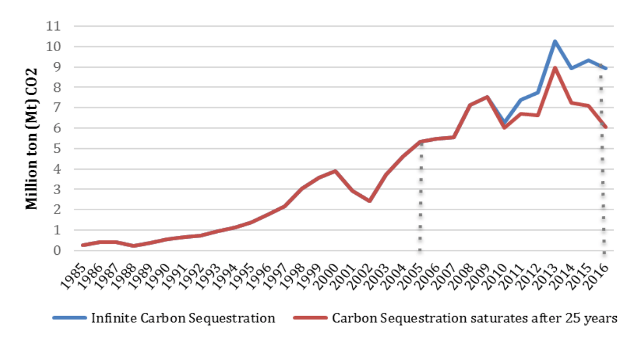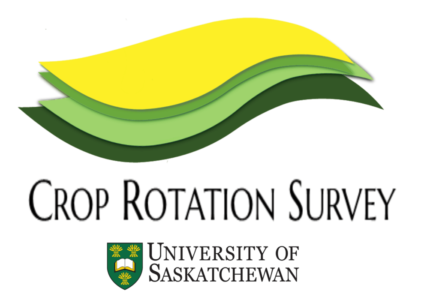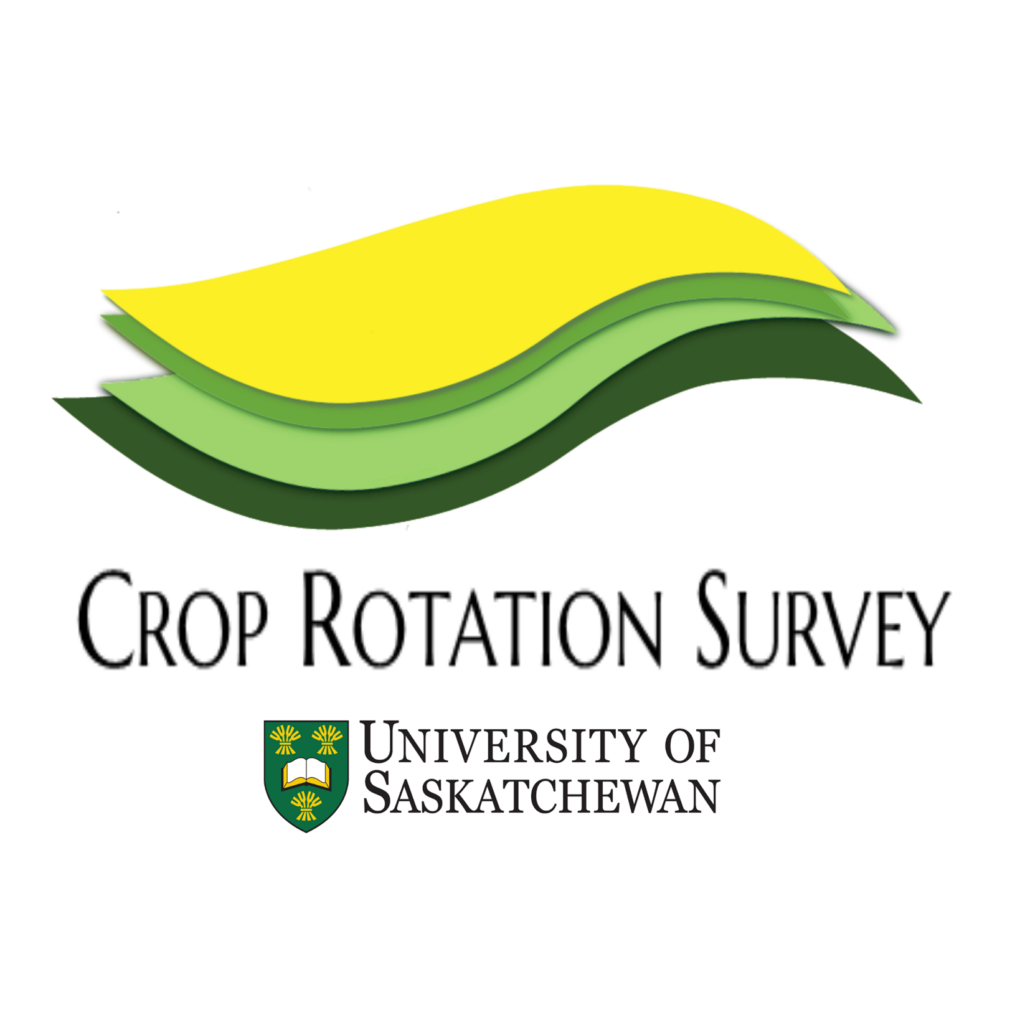Over the last quarter-century, farmers have been working hard to adopt innovative and sustainable practices for their economic and environmental benefits. Two notable shifts in management practices include the widespread adoption of zero-tillage and the removal of summerfallow in crop rotations, both of which contribute to increased carbon sequestration. Yet, these important and voluntary contributions made by farmers towards environmental sustainability over the last 25 years are often not recognized by the government, policymakers, or the public. Now, farmers, farmer associations, and commodity groups alike are calling for proper recognition of these beneficial adoptions. The Crop Rotation Survey, a project underway at the U of S, aims to help achieve this. With the help of Saskatchewan farmer participation, the results of the project will help to document how farmers have adopted, and continue to adopt, technologies and management practices that impact carbon sequestration and GHG emissions.
What is Carbon Sequestration?
Carbon sequestration is an important part of reducing net GHG emissions. It offsets GHG emissions by transferring carbon dioxide (CO2) from the atmosphere into carbon storage in plants through the process of photosynthesis. Much of this carbon is then transferred from the plants into the soil when the plant residues break down instead of being released back into the atmosphere
The improvement of carbon sequestration in agriculture is achieved by increased input of carbon into the soil and decreased soil disturbance. Two on-farm management practices contribute to these objectives: the adoption of zero-tillage and the removal of summerfallow from crop rotations. Since the early 1990s, the adoption of zero-tillage and the complementary reduction of summerfallow has spread rapidly in Western Canada. Between 1991-2016, the number of Canadian acres with zero-tillage management increased by 900%, from 4.8 million acres to 48.2 million. In the Prairie Provinces specifically, the number of acres managed with zero-tillage increased from 4.5 million acres to 45.2 million over this period. At the same time, the number of acres under summerfallow management decreased by 88% between 1991-2016, from 19.57 million acres to 2.21 million.
Older research suggested that carbon equilibrium would be achieved 20-25 years after the adoption of sustainable management practices, meaning that soils become carbon saturated and unlikely to continue to sequester carbon. However, recent research by the Saskatchewan Soil Conservation Association (SSCA)suggests that soil carbon is still increasing even 30 years after the adoption of sustainable on-farm management practices. Thus, improved carbon sequestration remains an important contributor to Canada’s climate change goals.
In 2018, Smyth and Awada released a report quantifying Saskatchewan’s net GHG emissions. As part of the analysis, they estimated the change in Saskatchewan carbon sequestration due to the adoption of zero-tillage and removal of summerfallow. Their results can be seen in the figure below, with the red line representing a situation where soil carbon saturation is reached after 25 years, and the blue line representing infinite carbon storage.
The adoption of sustainable management practices by farmers is having a significant impact on GHG carbon storage, and future adoptions of innovative technologies and management practices present the opportunity to benefit our land and environment even further.

Farmer Recognition for Carbon Sequestration
As shown above, the adoption of sustainable management practices by farmers has had a substantial impact on carbon storage and deserves recognition. The SSCA is one producer group that is working hard towards this goal of recognition. A recent article in the Western Producer discusses the SSCA’s work towards implementing a system where farmers are paid for their carbon sequestration through a Saskatchewan soil carbon sequestration policy. This policy would also be incorporated into the developing federal greenhouse gas offset program. Such a program would provide both monetary recognition for farmers’ contribution to improved environmental sustainability, as well as encouragement for further emission reductions moving forward.
The Crop Rotation Survey
Here at the University of Saskatchewan, we are also working towards improved recognition for the innovative and sustainable adoptions of farmers. The goal of our current project, the Crop Rotation Survey, is to provide farmers with a voice when it comes to important environmental topics such as GHG emissions, carbon sequestration, and soil and land stewardship
The survey collects data from farmers on land management practices over two time periods, 1991-1994 and 2016-2019, intending to document the progress made towards improved environmental sustainability over the past 25 years. The data will be used to quantify the environmental and economic impacts of this progress and to inform the government(s) and the public of farmers’ contribution to Canada’s environmental goals.
We are looking for Saskatchewan farmers to participate in this project either in-person at one of our workshop events or by completing the survey online from home. Participants of the Crop Rotation Survey will provide information on all aspects of land management from seeding, tillage, fertilizer, and chemical use, to harvest. Though we are collecting information from both 1991-1994 and 2016-2019, farmers do not need to have been farming during both periods to participate.
Participants will be paid up to $200 for their time and contribution to the project. To register for the workshop, whether online or in-person, please click here. For more information, please visit the Crop Rotation Survey tab on the SAIFood website.
We know farmers value environmental sustainability and the stewardship of their land and soil. Farmers work hard to ensure that their land and soil remain healthy for future generations, and it is this message we would like to help share with others. It is also clear that policies do not always account for farmers’ hard work in adopting innovative and sustainable practices. It is time for us to come together, farmers, academics, and other industry members, to communicate the positive changes and progress seen in Saskatchewan agriculture over the last 25 years. It is time to help share the voice of Saskatchewan farmers when it comes to environmental sustainability.
References:
Smyth, S., Awada, L. (2018) Assessment of Saskatchewan Agricultural Greenhouse Gas Emissions: Sources, Sinks and Measures. June.


